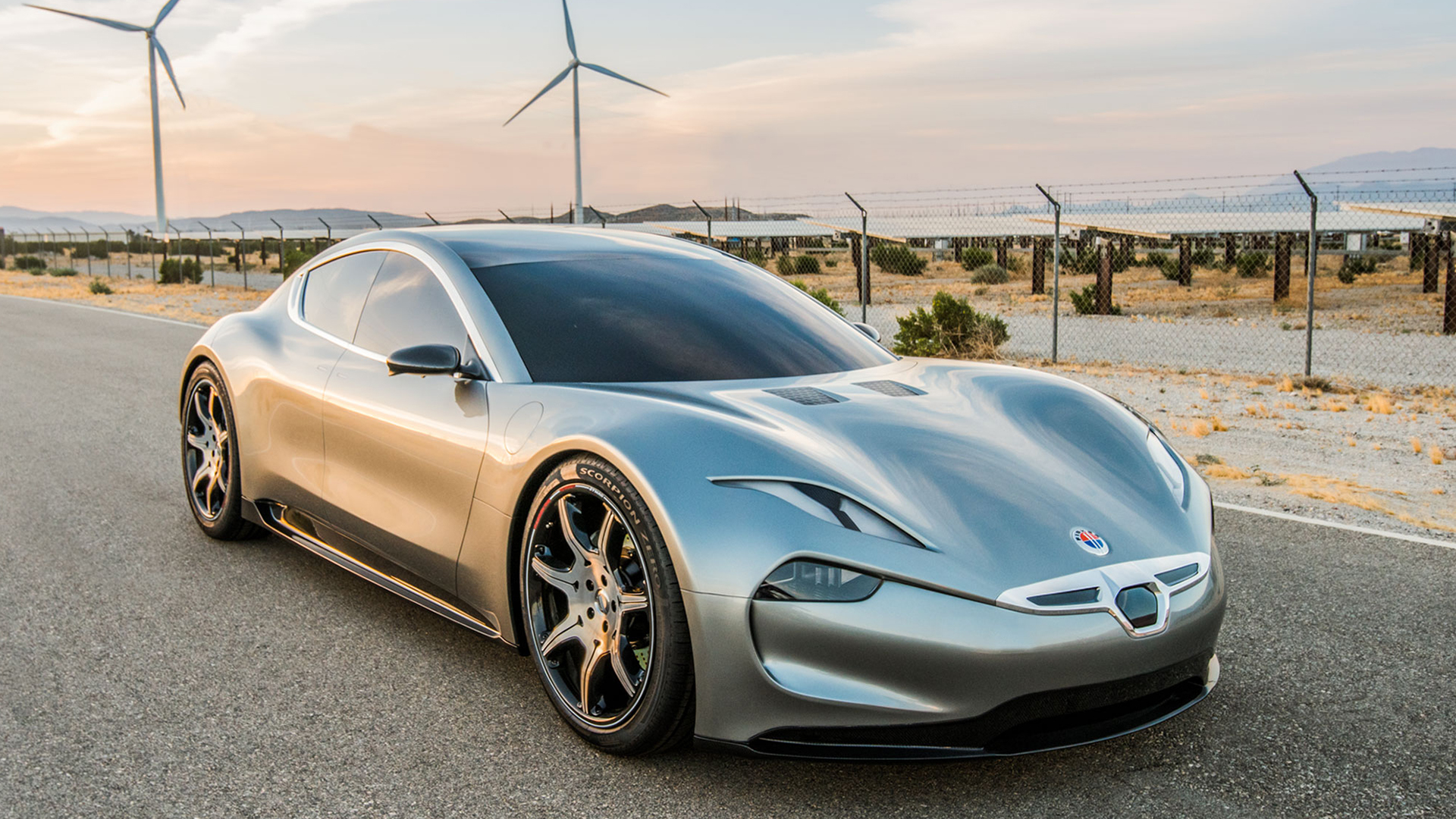

Fisker Inc., the second automaker founded by famed car designer Henrik Fisker, just scored a new investor. Caterpillar Venture Capital Inc., a subsidiary of heavy-machinery company Caterpillar, will invest an undisclosed amount of money and resources in the automaker. This will drive the development of new battery technology Fisker claims will lead to a breakthrough in electric car performance.
Fisker is betting that solid-state batteries will surpass the lithium-ion batteries used in all current electric cars. Solid-state batteries use a solid electrolyte rather than the liquid used in conventional batteries, hence the name. This is supposed to yield greater energy density, meaning more electricity can be stored in a given volume. More storage capacity means more range, addressing one of the biggest drawbacks to current electric cars.
If Fisker’s claims for the solid-state batteries prove true, the technology could be a game-changer. Fisker has said they will eventually allow electric cars to travel 500 miles on a charge, and recharge in just one minute.
Such predictions have many companies jumping on the solid-state battery bandwagon. Dyson, the British company known for cordless vacuum cleaners is planning to build electric cars also owns Sakti3, one of the first companies dedicated to solid-state batteries. BMW and Volkswagen are partnering with solid-state battery firms Solid Power and QuantumScape, respectively. Toyota has said its first mass-market electric car will use the technology. So far though, no company has adapted solid-state batteries for use in a volume production car.
However, Fisker’s first planned production car, the EMotion (yes, really), will not use solid-state batteries, according to Green Car Reports. In order to get it into production quicker (Fisker previously quoted a late-2018 timeframe) the company will use conventional lithium-ion batteries supplied by LG Chem–which also supplies batteries for the Chevrolet Bolt EV, among others.
Even with conventional batteries, Fisker is making ambitious claims for the EMotion. The electric luxury sedan will have a range of 400 miles, with a nine-minute recharge to reach a range of 125 miles, according to Fisker. The car will have all-wheel drive, a top speed of 161 miles per hour, and a base price of $130,000. A it’s typical of Henrik Fisker, the design is flamboyant, featuring “butterfly” doors that swing up in supercar-like fashion.
Launching a new car company, especially one based around a new technology isn’t easy, something Henrik Fisker already knows. His previous venture, Fisker automotive, sold a handful of its Karma plug-in hybrid sedans before declaring bankruptcy (Fisker had left his namesake company by then). The remains of Fisker Automotive were eventually bought by Chinese auto-parts giant Wanxiang and reconstituted as Karma Automotive. The company is now selling an updated version of its original car as the Karma Revero.